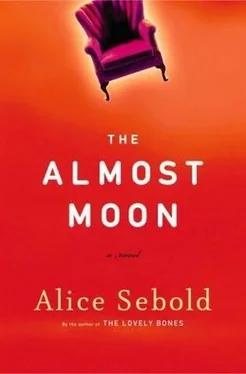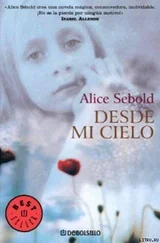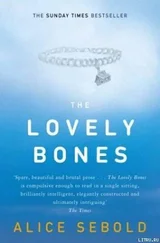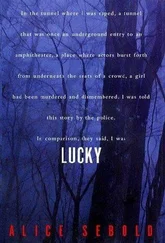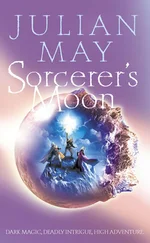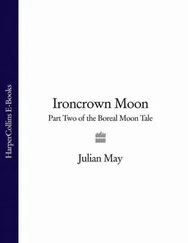“Well, are you proud of yourself?” she asked.
“What?”
“You’re throwing your life away, you know that? Pissing it down your leg.”
I stared at Jake.
“Mom?”
“What?”
“I’m going to have a child.”
“There are no awards given out,” she said.
Something about the expression on my face made Jake stand and take the phone from my hand.
“Mrs. Knightly,” he said, “isn’t it wonderful news? I’m incredibly happy at the prospect of being a dad.”
I took his seat at the table and looked up at him, marveling. Though I had entered the confused state my mother often put me in, I sensed that if I watched his face and listened to his voice, I would come back to the new world that Jake and I had made. A world my mother didn’t rule.
Nearly eight years later, it had also been my father whom I sought out at the local Catholic church. I was in town, but I didn’t tell my mother this when I called. I didn’t want to see her until I’d spoken to him.
A man he worked with had told my father about the rising cost of maintenance at St. Paul ’s Parish, and my father had suggested the vestry consider keeping sheep. With all the ancient headstones jutting up and out in uneven rows, the sheep could keep the grass down better than any mower, and their munching was exact, my father said. “No clippers needed.” He had even volunteered, though he had no connection with the church, to come and tend them when he could.
The girls and I approached him from the parish parking lot. I carried Sarah in my arms, though in Madison I had told her that, at four, she had grown much too old for Mommy to carry her around. Emily, however, smiled for the first time since I’d packed the two of them and three suitcases in the Bug.
“Granddaddy!” she yelled. As we reached the churchyard wall, Sarah slid down my side to the ground. My father turned and dropped his rake at the sight of us. Emily scrambled over the wall by using the horse-mount steps while I lifted Sarah up and over to join her.
After they had been introduced to the sheep, Sally and Edith and Phyllis, and my father had shown them how he cared for them-cleaned out their wooden shelter, filled bowls with food and water-and talked to Emily about a bully she was frightened of, the girls were content to play among the graves.
My father and I walked.
“I see it in your face,” he said quietly as we crossed out of the churchyard and entered the newer section, where mowers, not sheep, were responsible for the maintenance of the flat markers.
“We’re getting a divorce,” I said.
Without speaking, the two of us sat down on a white marble bench donated by a family who had lost three of its members in a car crash.
We were silent for a moment, and I began to cry.
“I always think of how much life there is in the graveyard,” my father said. “Flowers and grass grow better here than they do anywhere else.”
I leaned my head into his shoulder. I had discovered a level of affection with Jake and knew I would miss it. I sensed my father’s discomfort almost immediately. He pivoted ever so slightly, and I sat straight up.
“Have you seen your mother?” he asked.
“I couldn’t bear to,” I said. “I called from a pay phone, and she told me where you were.”
“Will you move back home?”
“I’d like to be near you,” I said, “but I think the girls need…”
“Of course,” he said. “Of course.”
I could see his mind working as I had hoped it might. I thought of the small glass-backed clock that sat on his dresser, how as a child I had watched it in fascination to see the brass gears moving inside the four beveled panes.
“Mr. Forrest has a friend, a real estate agent,” he said. “There’s a new development in the area near where your mother and I once looked. Nice two-stories, not split-levels.”
“But…”
“It will be my gift.” He patted my hand.
I stood and straightened my skirt. The ride from Wisconsin had been long and hot. Guiltily I watched his back as he moved closer to the churchyard and his grandchildren. I did not want to be like my mother. I did not want to depend on him.
I don’t remember when Hamish finally roused. I had spent the intervening time staring into the dark, toward the Limerick nuclear towers, and thinking of my father.
In the night, at a nonparticular hour, the lights at Limerick begin to flash green, then red-the one color answering the call of the other. It was always a message Natalie and I imagined as an SOS, as if inhabitants were trapped inside the molten core and, under cover of darkness, were communicating with an unknown other on the outside.
When Hamish reached out for me, I had almost forgotten it all. How and why I had ended up where I was.
“I used to believe I had a female twin in the world somewhere,” he said.
I stared blankly at him, but then the weight of his palm on my thigh jostled me back from where I’d been.
“That wasn’t bullshit,” he said. “I don’t use that as a line.”
I kissed Hamish slowly, as if they were true, those dreams of childhood-that we were adopted, that we had fallen whole from the sky, that our parents were not our parents but hologram projections that proved there was another world to be escaped into.
As the light blinked on and off in the distance outside the car, Hamish leaned into me. I felt his weight and breath and resilience. He reached over to my side of the driver’s seat and pulled up the lever until my seat shot back. Neither of us spoke. We grappled with the awkwardness of the stick shift and steering wheel, but our persistence was united and thorough. I knew there was no way I was leaving that spot on the hill until Hamish and I were satisfied in our separate vacuums. It was sex of determination and will, sex of mountain climbing and straining and checking a goal off on a list made only moments before. The passion came from a limited supply of air and time and an obvious illicitness.
When we reached a place we both sought-two feverish patients chasing an itch-I was halfway into the backseat with my head at an almost right angle. Hamish had used his arms to keep his full weight off me, and looking forward, I could see only the warm, moist margin between our abdomens as his head moved upward toward the roof of the car. I closed my eyes and met the slamming of his hips. I would not leave the car or the moment. I would chase the animal that had wanted to murder my mother since my earliest age. Until today, I realized, it had been an innocent urge I carried inside me like a spleen, optional but always present, in some way part of the whole.
Between Hamish’s collarbone and his left biceps, there was a tattoo I had never noticed. I thought tattoos were highly stupid-a way, like ordering an upside-down Frappuccino, that people lacking direction claimed identity in the world. I stared at it now as a wave of nausea and hilarity rose in my gut. It was a circular tattoo, very suburban-mall “oriental” in look and no doubt inked at Thad’s Parlor next to the auto-body shop. You could pick out in the minimal blue the tail of a dragon, and if you followed it, you swiftly arrived at the head, biting that tail.
“Jesus, Hell,” Hamish breathed beside me. “Fuck.”
“Thank you, Hamish,” I said.
“You’re most awesomely welcome.”
“I should get home,” I said.
Hamish moved to glance at his watch and sat up. I thought only then of Natalie. I pictured her out on her date with the contractor from Downingtown. I remembered her quoting, when we were girls, from an Emily Dickinson poem. “Because I could not stop for Death-/ He kindly stopped for me.” She had been en pointe in her despised toe shoes, and at the end of each line, she spun in a circle until, dizzy and slightly drunk from the brandy we had stolen from her mother, she fell into my arms on her bed.
Читать дальше
